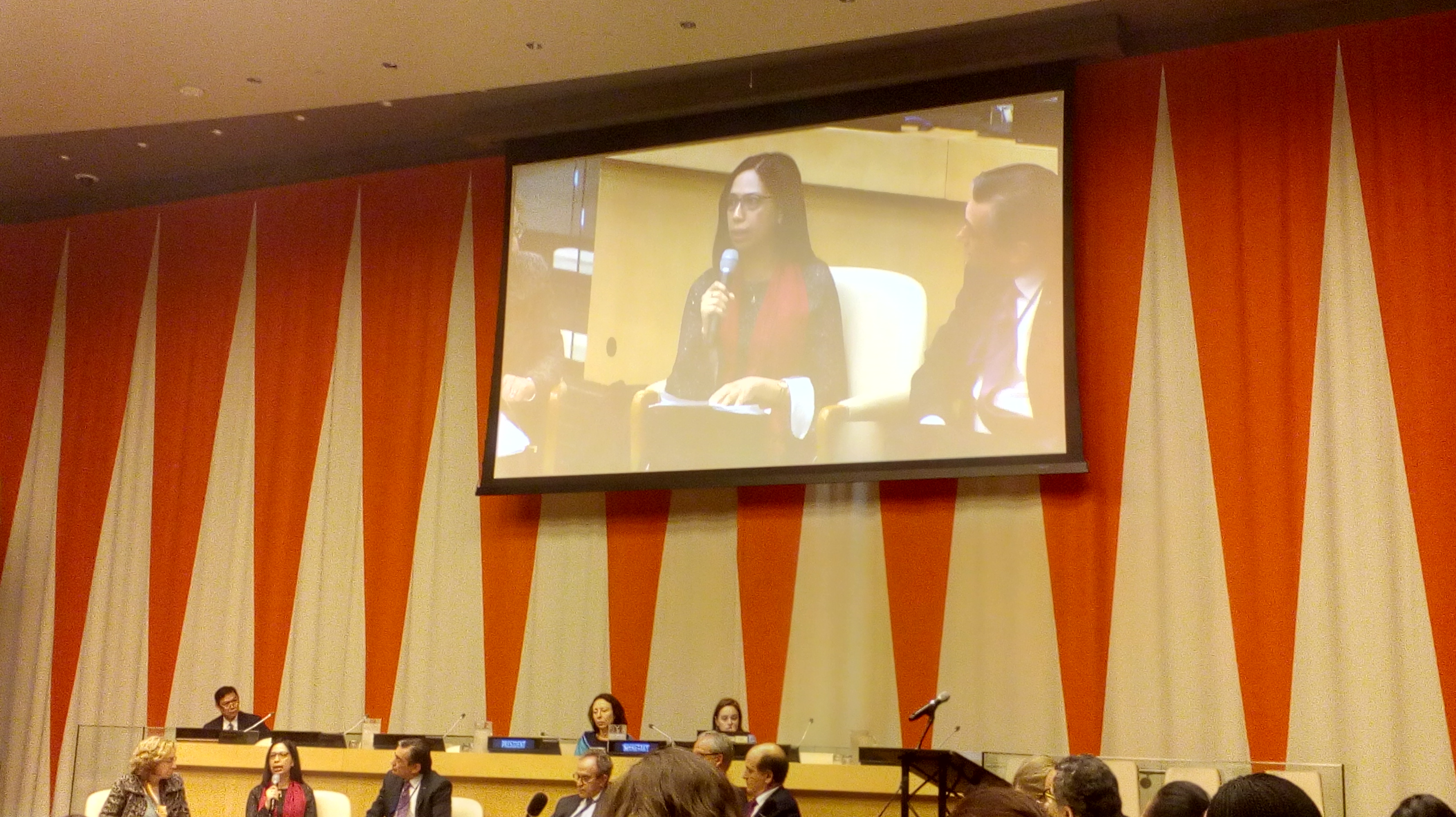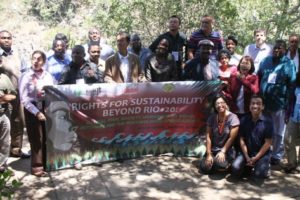On 22 May 2018, Amy Padilla, Director of IBON International, represented the organisation at the 2018 High-Level Meeting of the Development Cooperation Forum (DCF) of the UN Economic and Social Council (UN ECOSOC).
She gave insights from a Southern people’s perspective during a session on Southern countries’ development cooperation (known as “South-South cooperation”), stressing not only the need for genuine people’s participation in development but also how solidarity, mutual benefit and equality are important principles for development cooperation.
Read parts of her intervention below.
***
Thank you Mme. President, Mme. moderator and colleagues for this opportunity for IBON International to contribute to this session on South-South Cooperation (SSC). There are five points I wish to make:
1. SSC showing a significant way to go on how power relations should be rebalanced in development cooperation, as SSC is founded on solidarity
We know that in development discourse there are power relations that are at work. South-South Cooperation traces its roots in the Bandung Conference in 1955; further back from the BAPA +40 towards which we are operating in 2018. In this Asian-African conference, Southern countries with a shared history of colonialism and oppression banded together to resist colonialism and neocolonialism. There were criticisms of traditional North-South relations, founded on shared development goals as well as strong principles of solidarity, mutual benefit and equality. These, especially solidarity, should point us to a way forward when we think about guiding principles in development cooperation.
2. SSC, however, does not replace official development assistance – a historical obligation of the Northern countries
We think that South-South development cooperation is likely to remain modest in relation to DAC flows (flows from Northern member countries of the OECD Development Assistance Committee). On the other hand, aid remains the responsibility of Northern countries to the South, due to underdevelopment which may be historical – they may be former colonies which are still reeling from its effects.
These effects may also be continuing; these could be neoliberal policies that have continued to impact on the South. These should still be in the equation. But at the same time, we think that the core principle of South-South development cooperation needs to be applied within the countries and it should be the Southern countries who are defining their modes of operation.
3. There is a need for institutionalised mechanisms for SSC especially at local, national levels that ensure genuine people’s participation
For us, in civil society, it is important to ensure that there is genuine people´s participation in all of these institutional mechanisms on South-South development cooperation because, after all, the people are the intended beneficiaries of all of these.
4. Aside from genuine people’s participation,principles of solidarity and democratic ownership should guide SSC
These should be towards contributing to a comprehensive and locally-owned national development strategy that develops agriculture, industry and services in an integrated and sustainable manner.
5. Finally, it is important to strengthen human rights-based, democratic frameworks of SSC
These needs to be strengthened and to be inclusive to the countries in the South – they should be able to define the norms and standards that should be applicable to them. It should be the Southern countries defining these, and as stated in the earlier point – at the national level this should be something that is informed by peoples’ perspectives and interests throughout the process.
See this link to the 2018 DCF Program, in particular the Session 4 on Day 2: “Leveraging South-South and triangular cooperation for sustainable development: on the road to BAPA+40.”




